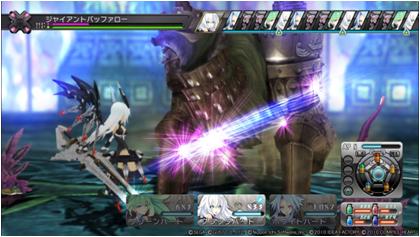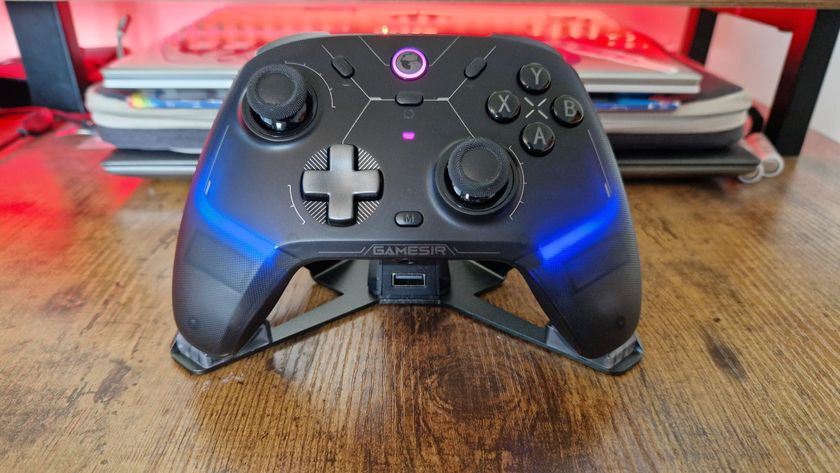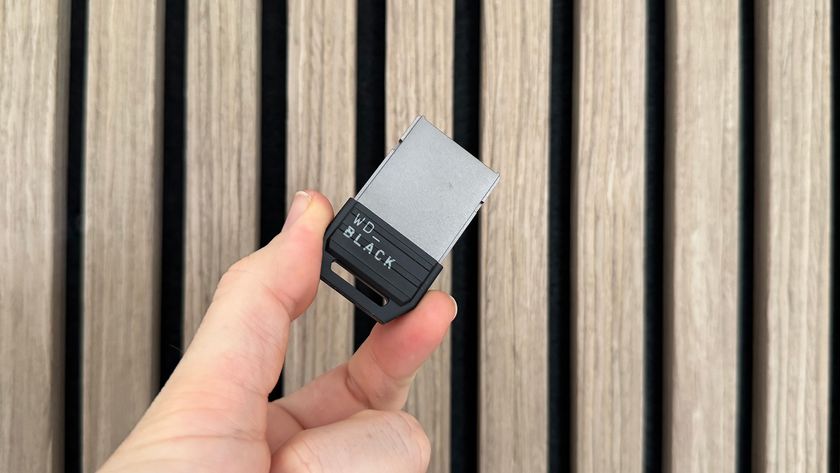12DOVE Verdict
Pros
- +
Occasionally clever humor
- +
Nicely drawn character designs
- +
Copious fanservice
Cons
- -
Groan-inducing references
- -
Slow-paced
- -
boring exploration and combat
- -
Wondering if these girls are even legal
Why you can trust 12DOVE
Hyperdimension Neptunia is a prime example of an interesting game concept that fumbles in its execution. It’s a Japanese RPG that’s essentially a combination parody/metaphor for the videogame industry, replete with allegories to actual companies and events going on in the crazy battle for market supremacy we find ourselves ensconced in. While the gaming biz is absolutely ripe for a satirical spin, Neptunia is the one thing a parody shouldn’t be – boring.
In the fantasy land of Gamindustri, there are four ruling goddesses fighting for supremacy in the Console War. As much as they all loathe each other, they decide killing each other would be easier if they teamed up to eliminate the weakest link – the goddess Purple Heart. She’s cast down to the human world with the name of Neptune and no memory of her formerly divine existence, but receives a prophecy from a disembodied voice that she holds the key to saving the world from evil. Along the way, she meets several companions (all of whom are also sickeningly cute anime girls of dubious age) and helps the natives of the various territories fight evil forces like a massive robot-controlled company bent on undermining and destroying all of the smaller, human-controlled tech firms. Behind it all lurks a being by the name of Airfoire bent on destroying everything – can Neptune end the Console War and save all that Gamindustri holds dear?
But perhaps a more appropriate question is, “do we really care?” For all it invests in its characters and setting, Neptunia does a lousy job of holding your interest beyond a few throwaway gags. The primary character designs come from the school of modern moe, and the writers make sure to pander to the fringe interests of the presumed otaku audience often (hope you like jokes about boob size, because there are plenty of those). Beyond the hackneyed anime humor tropes, some of the subtle game business allegories are genuinely amusing, but more often than not the game simply resorts to lazy Family Guy-style humor: it makes a reference to a game or company, and that’s it, that’s the whole joke. Most annoyingly, the story presents little reason for us to care about this world beyond its metaphorical game-industry connection: any characters beyond the main cast are just presented as generic blank silhouettes, and much like the recent Final Fantasy XIII, there are no actual cities to explore, just event sequences and dungeons.
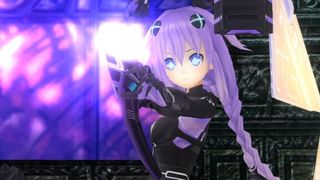
That the humor is so hit-or-miss (usually miss) is made worse by the fact that the gameplay itself is no great shakes. You can’t actually explore the exciting scenery of this interesting game world, and thus Neptunia flows as follows: watch story scenes, go into short, dull dungeons to trigger another story scene, slog through sidequest dungeons to grind for items, money, and experience, then watch more story scenes and go to another dungeon that looks like the one you were just in three dungeons ago, repeat. Combat involves an interesting button-based, combo-building system that, while interestingly designed, moves so slowly that even beating down easy enemies seems to take an eternity. (Don’t expect to run much, either - you need items for that and they are expensive!)
The item and healing system is also cumbersome: you can’t directly control when your characters use healing and status-curing items, instead assigning points to skills to help increase the odds of skills being used if a certain factor comes into play (e.g. a character’s HP dips below 50%, or they get hit with a status ailment). This unreliability brings a lot of battles down to sheer luck - imagine if the Gambit system in Final Fantasy XII only kicked in a fraction of the time, and that’s what you’ll see here in Neptunia. Combine that with graphics that look akin to a 720p Wii game, weak character animations, and a wholly unmemorable soundtrack and you’ve got a game that, for all its commentary on the current console wars, feels behind the technology curve.
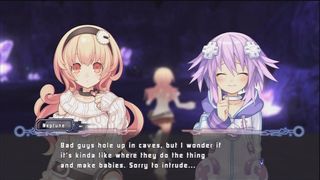
Hyperdimension Neptunia is far from the worst game you could play, but it doesn’t really give a good reason to pay it any attention. Its slow-paced combat and exploration, weak visuals, and plodding plot leave a lot to be desired. The game-industry parody angle is novel, but its execution leaves much to be desired – and the moe-heavy presentation is likely to leave some players very skeeved out. It’s a shame, too, because there’s a lot of potential in a concept like this. Hopefully sometime down the line a better satire on the industry’s failings will come into play – until then, Neptunia can only be recommended to players with a lot of patience and a high tolerance for anime clichés.
Feb 24, 2011
More info
| Genre | Role Playing |
| Description | The console wars have never before been this cute... or dull. |
| Platform | "PS3" |
| US censor rating | "Teen" |
| UK censor rating | "12+" |
| Release date | 1 January 1970 (US), 1 January 1970 (UK) |
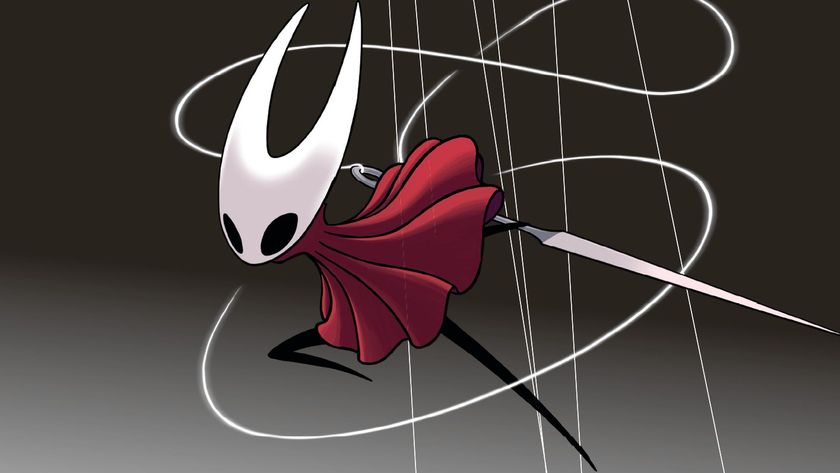
As Hollow Knight Silksong makes a blink-and-you'll-miss-it reemergence for Nintendo Switch 2, Xbox reminds everyone the Metroidvania is still day one on Game Pass

Superman's David Corenswet wants DC to adapt the animated show storyline where the Man of Steel switches places with Batman: "That would be fun"

A Minecraft Movie Review: "Jack Black's irrepressible star turn helps elevate this video game adaptation"
